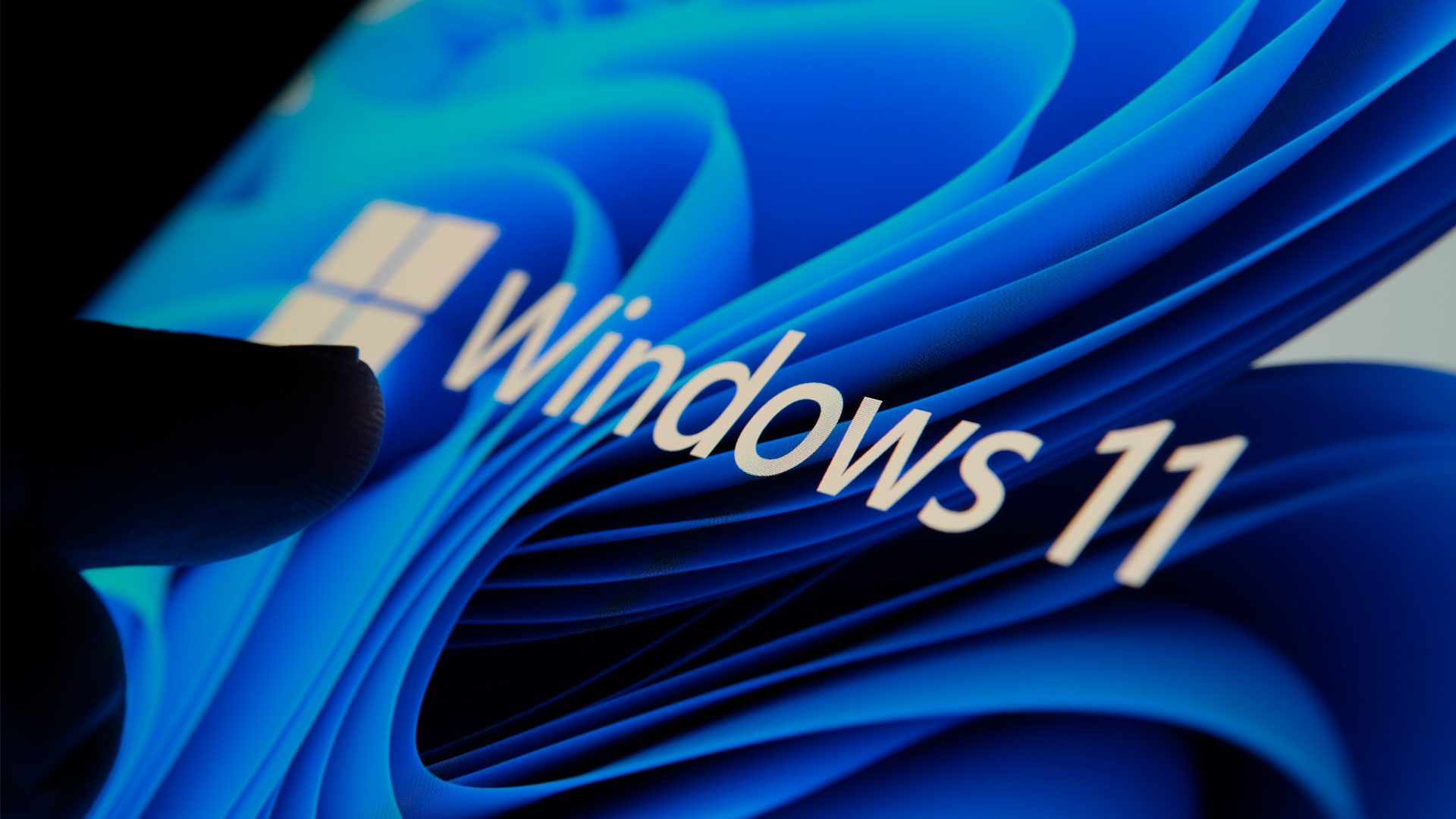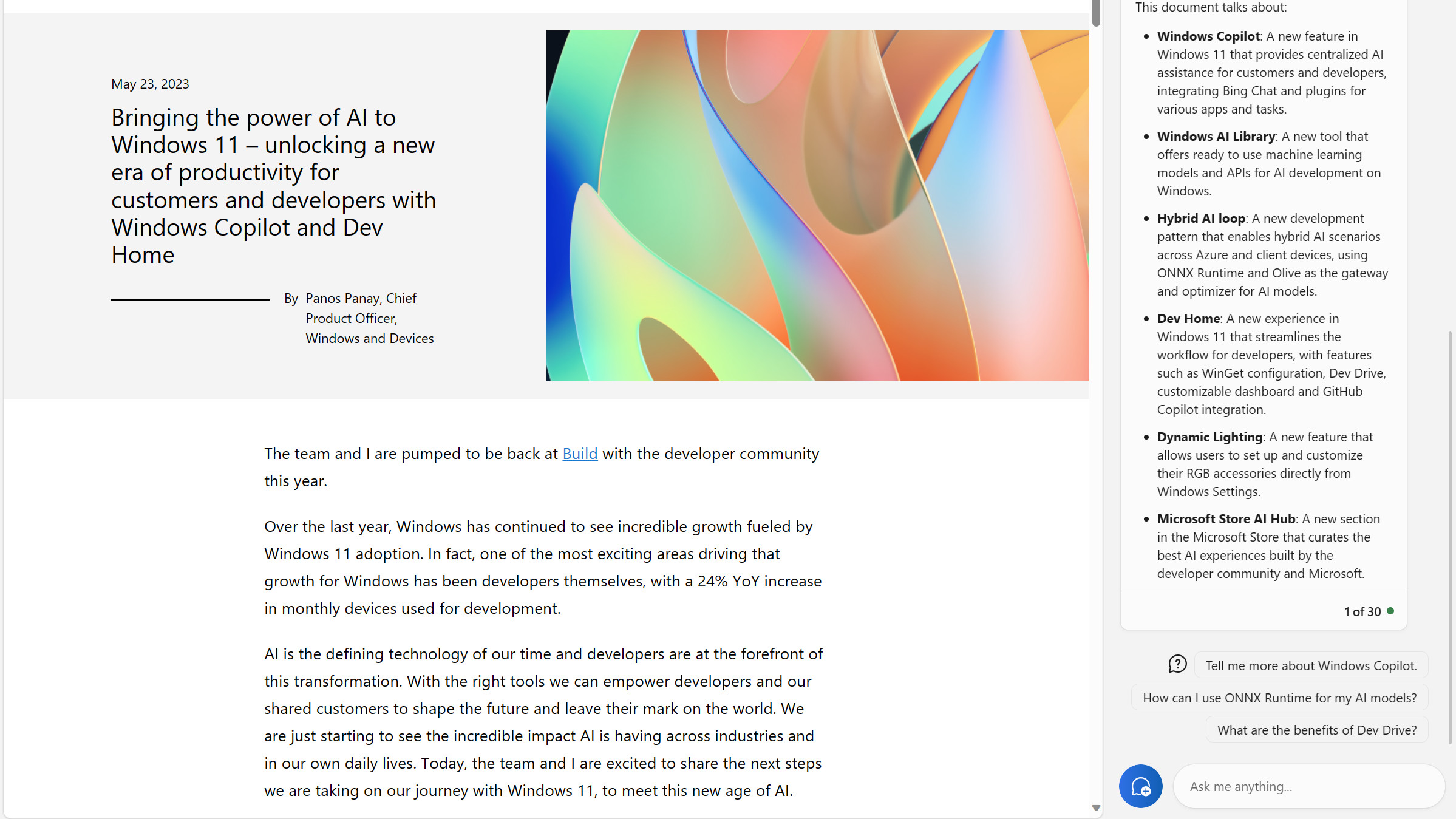Microsoft risks angering Windows 11 users by adding more adverts in Copilot AI
Copilot is speedily making its way through preview builds, so could be here for the 23H2 update, maybe

Sign up for breaking news, reviews, opinion, top tech deals, and more.
You are now subscribed
Your newsletter sign-up was successful
Microsoft is expanding the rollout of its Copilot AI to testers in the Beta channel for Windows 11 – but it comes with a sting in the tail.
Copilot has arrived with Beta build 22631.2129, but as with the preview incarnation of the AI in earlier builds, it’s in a limited form right now.
As Microsoft observes, this is more about getting the integrated UI for Copilot right – it runs in a sidebar, to the right – rather than testing all its features. We’re told that “additional functionality [is] coming down the road in future previews.”
Also, it should be noted that Copilot will be a “controlled feature rollout” meaning only a small amount of testers will get it initially. It’ll arrive for more folks in the “coming weeks”, so this is a rollout that could take some time.
(It’s also worth noting that not every Insider will get this build either – new testers, and a subset of existing testers, won’t get 22631 as it might cause their device to be put “into a bad state”, which sounds ominous).
If you’re not seeing Copilot and you’re in the Beta channel, then, this isn’t unexpected – but you should make sure you’re running Microsoft Edge version 115.0.1901.150 or better. (As the AI is powered via Edge, you definitely won’t get it on an older version of the browser).
For those who do receive Copilot, here comes that sting we mentioned at the outset. Microsoft tells us: “You may see inline recommendations we think are relevant through ads in Bing. We’ll continue to learn and listen to customer feedback.”
Sign up for breaking news, reviews, opinion, top tech deals, and more.
Yes, there we have it – adverts are going to be displayed in Copilot (we’ll come back to discuss that more thoroughly in a moment).
Elsewhere in build 22631, there’s a raft of tweaks and improvements, including some fresh work on bolstering accessibility. That comes in the form of the ability to now use Voice Access on the lock screen, plus there are new text editing controls when using speech dictation. (In order to help correct words that are misheard, or mistyped, as it were, by the voice recognition system – like putting ‘cereal’ when you meant ‘serial’ for example).
Check out Microsoft’s blog post for the full list of changes.

Analysis: So, ads in Copilot – testers, make your feelings known…
Windows Copilot making it to a beta build already is a pretty big thing, actually. This relatively swift progress through test builds suggests that Microsoft is serious about getting the AI integrated into Windows 11 this year. Rumors have indicated that Copilot could land with the 23H2 update, and this makes it look like that’s more likely to happen – even though we’ve said in the past we don’t think it will.
We’re still very unsure if it’s wise for Microsoft to push this hard getting Copilot out so quickly, though. The AI remains pretty barebones, and as Microsoft makes clear, it only has a “basic set” of Windows settings you can manipulate. (Turning on dark mode, or do not disturb, or ordering Copilot to take a screenshot are a few examples of Windows 11 functionality given in the blog post).
It's mostly still about the Bing AI summarizing things, or composing a picture, or writing text for you, and so forth – all the stuff that can be done already using the Bing chatbot on the web.
Over time, more features will be added, of course – and third-party plug-ins will expand Copilot’s functionality considerably – but all that seems quite a way down the line.
With Windows 11’s 23H2 update potentially arriving in October, that’s really very close now, so we don’t really get what Microsoft is planning here. It feels like the full launch of Copilot will be a basic incarnation of the AI, if it happens, and that runs the risk of underwhelming with first impressions. Oh well, we shall find out soon enough.
As for Copilot serving up adverts, this is something that Microsoft has said in the past, but the software giant appears to be pushing ahead with this frankly reckless idea. That’s not too surprising, though, as we are seeing more efforts to cram ads into Windows 11 – disguised as recommendations – lately. But obviously, it’s still a very unwelcome move in an operating system Microsoft charges you for.
We’d expect feedback to be pretty withering on this, particularly if, as it sounds, these will be more out-and-out adverts than what we’ve already seen in Windows 11 (like badging in the Start menu). And so hopefully Microsoft will have to take that into account, and curtail these ambitions. Hopefully being the keyword there…
Darren is a freelancer writing news and features for TechRadar (and occasionally T3) across a broad range of computing topics including CPUs, GPUs, various other hardware, VPNs, antivirus and more. He has written about tech for the best part of three decades, and writes books in his spare time (his debut novel - 'I Know What You Did Last Supper' - was published by Hachette UK in 2013).